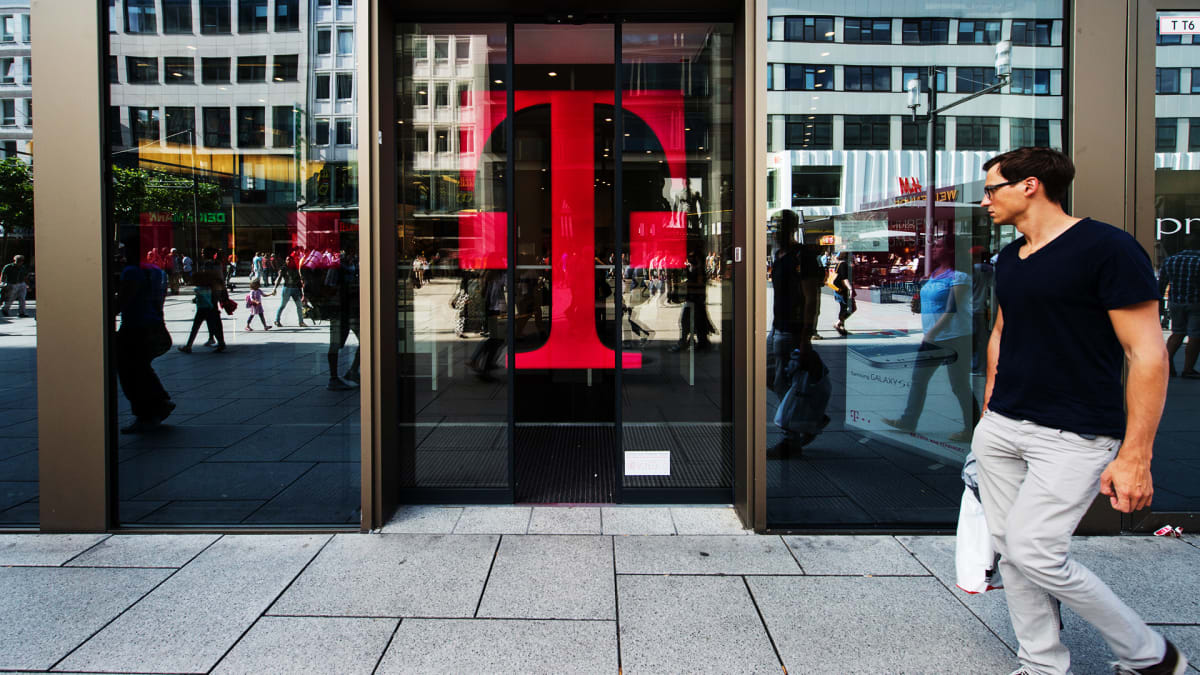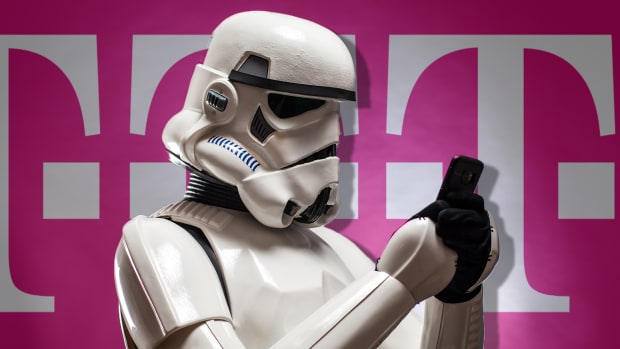
T-Mobile has built its business by putting customers first. That has included forcing its key rivals, AT&T (T) and Verizon (VZ), to change numerous policies that benefit the company, not the consumer.
You can thank T-Mobile (TMUS) for the end of overage charges and not having to track how much data you use. Back in the day, before the Un-carrier forced AT&T and Verizon to make changes, consumers used to be stuck between two plans.
DON'T MISS: Costco Tells Americans the Truth About Inflation and Price Increases
You could pick a conservative plan and end up paying overage charges if you used too much data. Conversely, you might end up picking a plan with way more data than you actually use and end up paying extra for no reason.
T-Mobile made all its plans unlimited and forced AT&T and Verizon to do the same. It also ended deceptive practices involving device bundling and made it much easier for people to leave their carriers while taking their phone numbers with them.
That's good for consumers but bad for T-Mobile because while it has the lowest churn -- customer turnover -- in the industry, the company still lost 0.89% of its customers in the most recent quarter.
That's an improvement from 0.93% in the previous quarter, making it the only carrier to improve. But when you have roughly 150 million postpaid customers (people who are billed rather than paying in advance), losing a little under a percentage point of that customer base each quarter is still a lot of people.
T-Mobile Chief Executive Mike Sievert has a solution for that, and some people aren't going to like it.

Image source: Shutterstock/TheStreet
T-Mobile Plans to Use Artificial Intelligence
When you hear a wireless carrier's CEO talk about using artificial intelligence, most people immediately assume that means those inane chatbots designed to cut down on labor costs. But those efforts, which often just frustrate customers, are not what Sievert has planned.
He talked about his company's churn problem at the May 25 Technology Alliance’s annual State of Technology luncheon in Seattle, Geekwire reported. He noted that he was impressed by his company's sub-1% churn rate.
“That’s very good,” he said. “But still, because we’re very big company, millions of people left us last year. And that just gnaws at us. Every one of them left a trail of data before they finally threw their hands up and gave up on us. Something was going wrong, something in the network, something in the customer interaction.”
AI, he believes, can help T-Mobile learn more about why people are leaving and help identify problems before they result in a customer deciding to go elsewhere. He thinks AI can help the company process its existing data to, if not solve at least lower its churn problem.
“So now that’s a big focus of our company, and that’s what you can expect,” he said. “Nothing will change about who we are … but now it’s going to have be rethought for this next era in a very profound way,” he said.
That, he acknowledged, would not be a quick solution.
“It’s going to be simultaneously bigger than most people expect, and take a little longer than the hype cycle suggests,” he said.
“The world’s not going to be different as we know it in 18 months … but it’s going to be profoundly different in ways you can’t even imagine in a decade.”
Memorial Day Savings! Unlock trusted portfolio guidance for a fraction of the price. Subscribe now.







